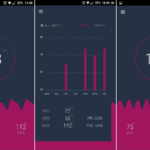1. Sweating and Health: Uncovering the Relationship

Who’s Healthier: Heavy vs Light Sweaters?
Heavy sweaters, or those who perspire more, often elicit curiosity about their health status. So, let’s unravel the relationship between sweating and health for these individuals.
Heavy Sweaters:
-
Body Function: Sweating is a natural mechanism for the body to regulate temperature and maintain homeostasis. Heavy sweaters may have an efficient temperature regulation system, or their bodies could be more active during physical exertion.
-
Physical Activity: For individuals who engage in regular sports or intense physical activities, heavy sweating is normal and indicates that the body is working to cool down and maintain performance.
-
Medical Conditions: However, if excessive sweating occurs without physical activity, it could be a sign of hyperhidrosis or other health issues, such as hormonal imbalances or infections.
Light Sweaters:
-
Physiological Makeup: Light sweaters may have a less efficient temperature regulation system or less active sweat glands. As a result, they might feel uncomfortable or struggle to maintain body temperature in hot environments or during exercise.
-
Health Indicators: Minimal sweating can be a sign of abnormal health conditions, such as hormonal imbalances or issues with the sweat glands themselves.
-
Exercise Response: Light sweaters may exhibit a poor response to physical activity, which could impact their overall health and performance.
2. Beyond Sweating: Other Factors at Play
-
Nutrition and Hydration: Diet and hydration levels significantly influence sweating. Well-hydrated individuals who maintain a healthy diet are often better equipped to manage their perspiration.
-
Overall Health and Fitness: Sweating is not the sole indicator of an individual’s health and fitness level. Factors like endurance, stamina, and recovery capacity also play crucial roles.
-
Mental Health: Stress, anxiety, and psychological factors can influence sweating. These aspects should be considered when assessing an individual’s overall health.

The Great Sweat-off: Who Comes Out on Top?
Conclusion
Sweat volume alone doesn’t determine an individual’s health status. Heavy sweaters may have efficient temperature regulation or engage in intense physical activity, while light sweaters could have health concerns or struggle with thermoregulation. Assessing overall health requires considering factors like diet, lifestyle, exercise capacity, and other health indicators.
































